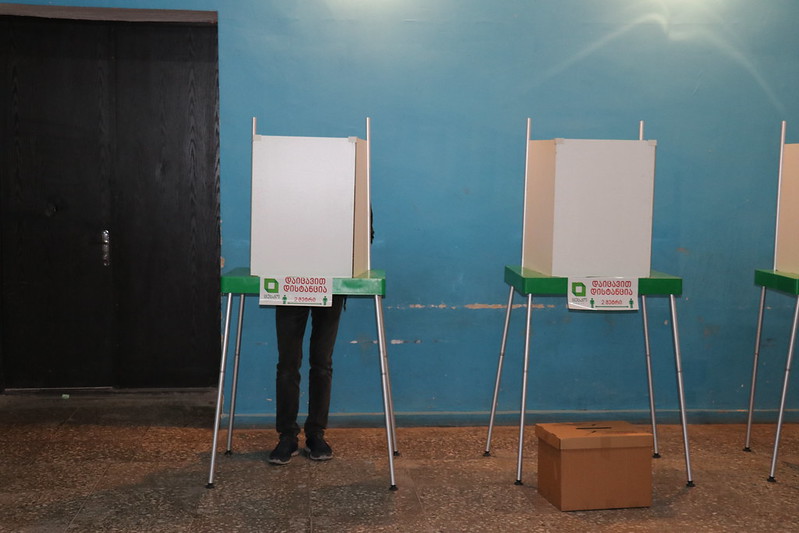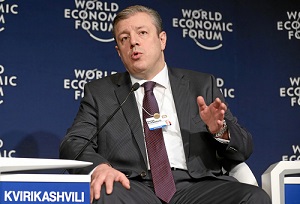Georgian Dream Claims Third Consecutive Victory in Parliamentary Elections
By Natalia Konarzewska
November 16, 2020, the CACI Analyst
For the first time in the country’s history, Georgia’s ruling party has secured a third consecutive term in the parliamentary elections on October 31. Many observers termed the vote pivotal as it was held under the freshly introduced predominantly proportional voting system, expected to break Georgian Dream’s (GD) tight grip on power, and amidst the unprecedented health crisis caused by the coronavirus pandemic. The opposition has refused to accept the results due to a large number of irregularities and pledged to boycott the new convocation of parliament.

Georgia’s Constitutional Reform is Good for the Ruling Party, Bad for Georgian Democracy
By Joseph Larsen
May 16, 2017, the CACI Analyst
The ongoing constitutional reform process clearly indicates that Georgia’s further democratic progress rests on shaky footing. The proposed constitutional amendments would weaken the power and popular mandate of the president and likely give the ruling Georgian Dream (GD) party an undue advantage in parliamentary elections. The proposed amendments justifiably raise fears that GD is just the latest political force with ambitions for single-party rule. Rather than locking in the country’s democratic gains, the draft constitution looks likely to consolidate GD’s legislative and executive power.

A move towards greater political participation among ethnic Azerbaijanis in Georgia?
By Zaur Shiriyev
December 20th, 2016, The CACI Analyst
Georgia’s recent parliamentary election is hard to distinguish from previous elections in terms of the consolidation of power by the ruling Georgian Dream party. However, a significant difference can be observed in the increased political participation among ethnic Azerbaijanis, most clearly manifested in the number of Azerbaijani-origin candidates who not only ran but were elected, as well as their age and diverse political belonging. This recent shift has introduced a new level of electoral competition, bringing with it the complexities of party politics. The ruling party provides resources to support its own candidates – as seen when two Azerbaijanis lost amid claims of electoral violations.
Reasons for cautious optimism as post-election dust settles in Georgia
By George Tsereteli
December 8th, 2016, The CACI Analyst
Despite the negative political discourse, pessimism and apathy shown by a historically low voter turnout in Georgia’s parliamentary elections in October, there are tangible reasons to be cautiously optimistic. When compared to other post-Soviet nations, Georgia is far ahead in terms of many economic and governance indicators. The main question moving ahead is how the ruling Georgian Dream (GD) party will use its newly-gained supermajority in parliament. The hope is that the ruling party will lead in an inclusive and non-unilateral way – respecting opposition viewpoints – while enacting responsible policies and reforms.
Despite Georgia-Azerbaijan gas deal, distrust is sown
By Boris Ajeganov
March 7th, 2016, The CACI Analyst
Uncertainty on the future of Georgia’s energy security has been growing since late 2015, when Georgia’s minister of energy and deputy PM Kakha Kaladze met with Alexey Miller, CEO of Russia’s Gazprom twice in the span of a month. Discussions on Gazprom’s potential return to the Georgian market quickly raised eyebrows in Baku and caused popular protests in Tbilisi. In a March 4 turnaround, Kaladze announced a deal to receive additional gas from Azerbaijan, thus removing the need to import Russian gas. Party politics aside, Tbilisi appears to have skillfully used its strategic position in the South Caucasus to secure a favorable energy deal without sacrificing its sovereignty.






